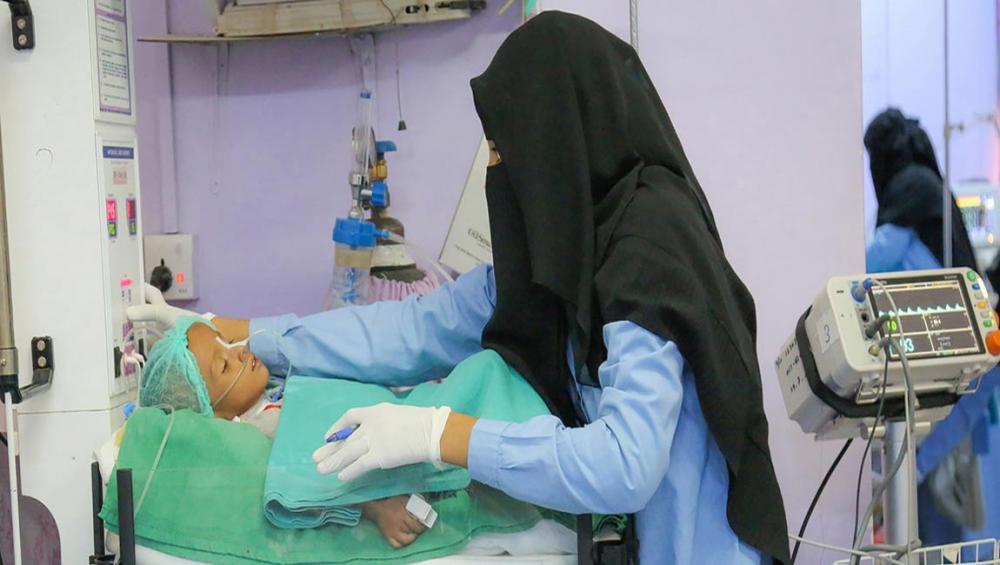Just Earth News | @JustEarthNews | 11 Nov 2018

UNICEF/Ahmed Abdulhaleem
New York,Efforts are being made to step up life-saving aid from eight million, to 14 million stricken Yemenis a month, the World Food Programme (WFP) said on Friday, before urging warring parties to spare the key Red Sea port of Hudaydah, which is a lifeline for the whole country.
The UN relief agency made the appeal amid a renewed spike of fighting around Hudaydah city and its port, which receives up to 70 per cent of the country’s aid.
In Geneva, WFP spokesperson çl said that Yemen risked becoming a nation of “living ghosts” unless the fighting ceased, in reference to Government forces supported by a Saudi-led coalition, who have been battling militia from the Houthi movement opposition, since conflict escalated in March 2015.
“We are more-or-less confident that we can still import the food that we want,” Mr Verhoosel said. “Obviously, the port needs to stay open. Today we have enough stock in the country for the urgent need for this month and next month. But for the future, (with) the plans we have to reach many more millions of people, we will need more access.”
Yemen is already the largest hunger crisis in the world, with millions of people living on the edge of famine in one of the poorest countries on the planet, the UN has warned repeatedly.
The last IPC report in Yemen - from March 2017 – found that an estimated 6.8 million people faced emergency levels of food insecurity and were close to famine.The decision to try to almost double food aid to the country comes ahead of the release of new data - on the scale of food insecurity, known as an Integrated Phase Classification (IPC) assessment.
That number “could rise to 12 or even 14 million people”, Mr Verhoosel told journalists, noting that “intense” fighting in and around Hudaydah in the west of the country has caused “major delays” in the delivery of humanitarian and commercial cargo.
“Whatever the military situation is in and around the city, it is crucial that all parties involved … leave the port functioning without any delay, avoid those delays and (the) eventual future closure of the port,” Mr Verhoosel said.
Echoing that message, Shabia Mantoo from the UN refugee agency (UNHCR) said that since June, the violence had forced 445,000 people to flee from Hudaydah Governorate.
“Fierce clashes, airstrikes and shelling have inflicted scores of civilian casualties,” she said. “In October alone, 94 civilians were killed and 95 were injured in the governorate.”
The number of those remaining in Hudaydah City is difficult to assess, according to UNHCR, which is worried that people may be trapped by military operations, “which are increasingly confining populations and cutting off exit routes”.
In a worrying development, the main road inland serving the capital, Sana’a, has been closed, “choking” aid operations and commercial markets for the governorate and its surrounding regions, the UNHCR spokesperson said.
Amid unconfirmed reports that Houthi opposition militia have taken up defensive positions at a hospital in Hudaydah, UNICEF indicated that fewer people were now seeking help from medical facilities.
“A doctor told us that usually there are 2,000, 2,500 patients every day that go to the hospital,”UNICEF spokesperson Christophe Boulierac said. “He didn’t tell me clearly how many are coming now, but he told me that the number of patients that come to this Al-Thawra hospital, has reduced significantly.”
The UNICEF spokesperson added that children remained particularly at risk. Hudaydah and neighbouring governates account for 40 per cent of the 400,000 children in Yemen who suffer from severe acute malnutrition.